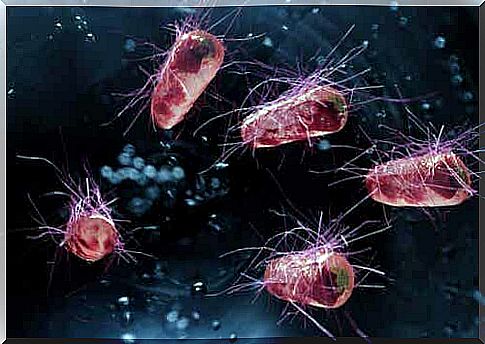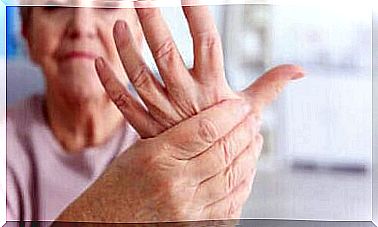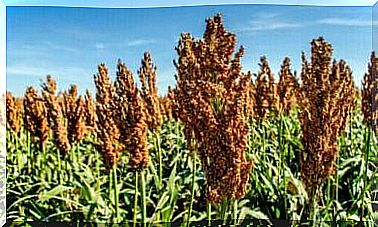Contagious Diarrhea: Everything You Need To Know

Specialists define diarrhea as thick or liquid stools that occur three or more times during the day. In addition to being a sign of a medical problem, infectious diarrhea is the second most common cause of death in low-income countries, according to the World Health Organization (WHO).
In western countries with a developed health system, diarrhea is usually not a problem. However, it can be fatal in other regions. Whether you are here for awareness or prevention, it is important to know this condition. In this article, we tell you everything you need to know about infectious diarrhea.
What is contagious diarrhea?
As we have mentioned above, infectious diarrhea is categorized as liquid stool that is produced more than three times a day. According to studies, this happens three or more times within a 12-hour period in young children of two years, or if not, at least once with blood, mucus or pus.
There are pathogens that cause diarrhea of infection unless there is another cause such as food poisoning or gastrointestinal problems, such as irritable bowel syndrome. Viruses, bacteria or protozoa (parasitic single-celled organisms) are also capable of causing the disease.
In addition to medical information, it is important to contextualize infectious diarrhea on a global scale. The World Health Organization has given us a series of revealing data, and among these we find the following:
- Diarrheal diseases are the second leading cause of death in children under the age of five worldwide.
- This means approximately 525,000 infant deaths per year.
- It may be possible to prevent a significant proportion of these diseases with adequate health structures and relevant food control.
- This condition can cause severe malnutrition, loss of healthy life years, and in more severe cases, the patient’s death.

Causes of infectious diarrhea
As scientific studies cite, viruses, bacteria and protozoa cause infectious diarrhea, as well as more complex parasites. We now briefly explain what each of these consists of.
Bacteria
Surprisingly, bacteria cause only between 10% and 20% of cases of infectious diarrhea. Among the most common enteropathogens we find the following: Shigella spp., Salmonella spp., Vibrio cholerae, Enterohemorrhagic Escherichia coli, Aeromonas spp. And Yersinia enterocolitica.
It is also worth mentioning the bacteria Campylobacter jejuni, which contributes to the four most common causes of diarrhea on a global scale.
Virus
Many viruses cause diarrhea, including norovirus and rotavirus. They are the most common responsible for acute diarrhea. These episodes of virus-induced loose stools are also known as viral gastroenteritis or stomach flu.
Protozoa and other parasites
Some protozoa present in water, such as Entamoeba histolytica or Giardia lamblia , can also cause infectious diarrhea. More complex parasites such as intestinal worms, scientifically known as Ascaris lumbricoldes , also lead to this type of clinical case.
Main reasons for transfer
Depending on which pathogen we look at, we can observe that the transmission methods are several and varied. For example, a virus is transmitted via microaerosols, such as coughing and sneezing – while a bacterium usually has to be ingested through food.
How to prevent infectious diarrhea
As a key rule, as the Center for the Prevention and Control of Diseases (CDC) states, the best prevention to prevent contagious diarrhea is to sterilize kitchen surfaces, not drinking raw water and only eating food that has been cooked or pasteurized.
This is due to the fact that the microorganisms that we have quoted above are transmitted through direct contact with the mouth or throat, through water or certain foods.

What are other symptoms of infectious diarrhea?
In addition to liquid or thick stools, infectious diarrhea can accompany other symptoms, depending on the cause. According to the National Institute of Diabetes and Digestive and Kidney Disease (NIH), some accompanying clinical signs may be as follows:
- Blood in the stool
- Fever and tremor
- Dizziness
- Vomiting
- Pain and bloating in the abdomen
Prevention from food
As you have seen in this article, many pathogens can cause infectious diarrhea: bacteria, viruses, protozoa and other parasites. In most western countries, this clinical case is not too much of a problem, but in areas with generally poor sanitation it is the second most common cause of death.
The best prevention against diarrhea (except in virus-induced cases) is to avoid and consume raw, poorly prepared food or food that is handled in an environment that has poor sanitation.









